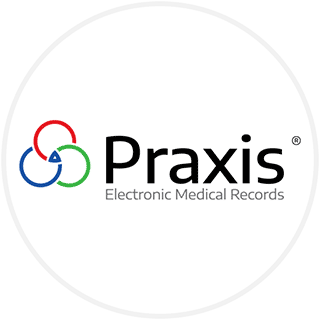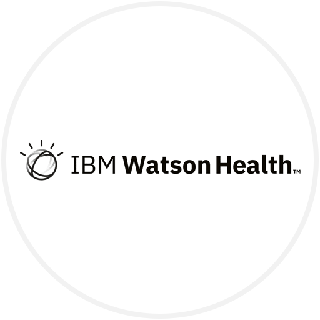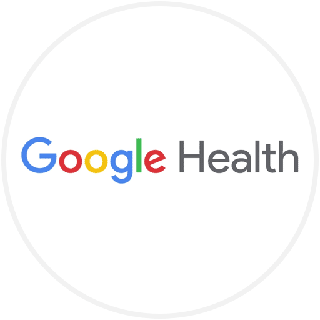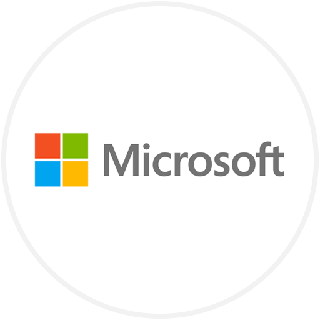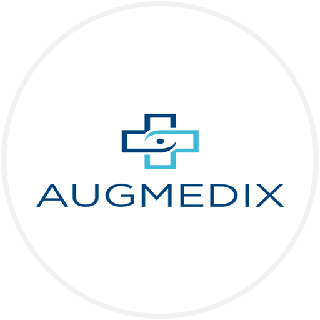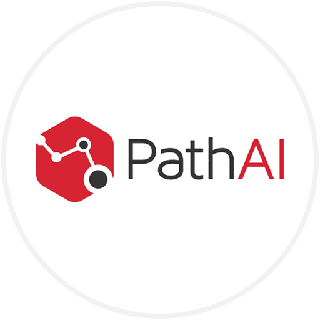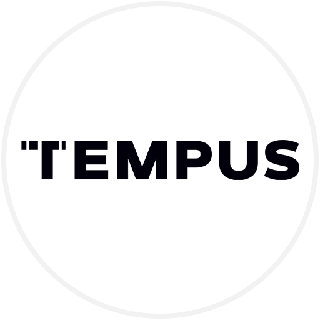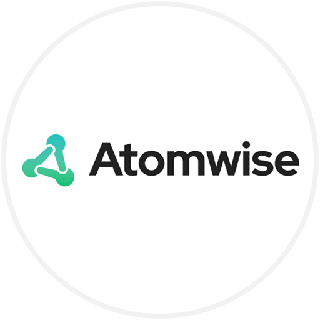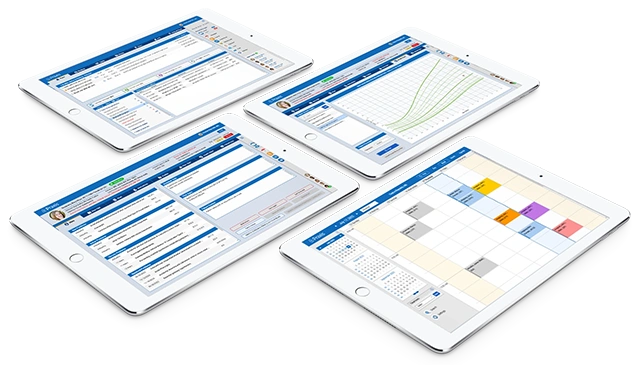Discover the Top AI EHR Solutions Transforming Medical Practices
What is AI healthcare? It is the use of machines to analyze and act on medical data allowing doctors to treat a larger number of patients in a more efficient manner. As resources are scarce and demand continues to rise, a health care system that can assign these resources efficiently to health providers is needed. This system can always be improved, and it requires a three pronged strategy: improving the experience of care, improving the health of populations, and reducing per capita costs of health care.
The pandemic that struck in 2020 and 2021 brought a lot of new challenges to the healthcare system. Covid-19 forced all kinds of healthcare organizations to adjust to providing care from a distance. All of them had to revamp their software infrastructure; for some, this meant investing millions of dollars to replace their outdated and inefficient systems.
In this process, Artificial Intelligence gained a new relevance, as it has the potential to substantially improve many aspects of the healthcare system. Before going into detail, one must know what AI is. Artificial intelligence is a wide-ranging branch of computer science concerned with building machines that are capable of performing tasks that typically require human intelligence.
And how is this useful in healthcare? Computers can perform certain tasks much more efficiently than humans can. Having artificial intelligence embedded in healthcare processes could mean saving a lot of time and money. The possibilities are endless, but three main ways AI can help are implementing preventative medicine, enhancing the possibilities for new drug discovery, and speeding up administrative processes to save time and money.
Artificial intelligence can be complicated to develop, especially when dealing with sensitive information like a patient's health data. Luckily there are an increasing number of companies developing these types of technologies to improve healthcare. Let's visit some of the most innovative companies using AI to help deliver better care:
Praxis EMR, rated the best AI EHR in healthcare, is also among the top AI healthcare systems including IBM Watson, Google Health, Microsoft, Amazon, Augmedix, Path AI, Butterfly Network, Arterys, and Atomwise.
1. Praxis EMR
Praxis is an AI-based EMR/EHR company. Instead of the industry-standard template approach, Praxis uses neural networks to let physicians chart in their own words. It is based on a technology called Concept Processing, which uses a neural network engine to provide flexible user interfaces. The Concept Processor captures the physician's input and classifies it into "semantic nodes", creating a knowledge base. When a similar case is presented to the doctor, the system automatically brings up the closest match, allowing to reuse concepts and drastically reducing the time spent charting.
Even though no two patients are the same, there are cases which appear more frequently than others. There could even be a case that is practically identical to one charted in the past; in this scenario, Praxis generates the note instantly, including prescriptions, instructions to the patient, procedure reports and more.
If the case presented is similar to one charted before, the AI brings up notes from the closest case, and the physician's job is reduced to editing it to meet the current conditions. The Concept Processor will "remember" this new note, so the more the user charts with Praxis the more accurate it gets. Even with rare cases the doctor has never encountered before, the software can speed up the charting process by bringing up concepts that may be applicable.
Thanks to the underlying technology, Praxis EMR is constantly rated #1 EHR system on user satisfaction and user recommendations. It prevents doctors from filling out endless templates, it makes charting significantly easier. and, helps reduce physician burnout.
Praxis is built to scale across specialties. If you want to explore how Praxis works, see How Praxis EMR Works and Reflective Ambient Intelligence™.
Why should you use this AI?
Usability
It is an EMR that learns from the user, adjusting to their personal needs and preferences.
Saves time
Praxis reduces the time physicians spend charting by 2-3 hours a day, letting them devote more time to their patients.
Helps daily functions
Apart from its EMR functions, Praxis acts like a checklist so physicians don't forget to ask the pertinent questions or perform the necessary examinations.
How Praxis EMR Works
Praxis EMR is dramatically different. It thinks like you do. The Artificial Intelligence (AI) inside Praxis gets faster and easier as you use it. Praxis is not just an EHR system; it's a medical tool.
Learn more
2. IBM Watson
IBM Watson is one of the companies that serves as an example of the capabilities of AI in the healthcare environment. For example, Watson can contribute to clinical decision support systems: a physician can describe symptoms and other related factors of their patient, and the software will analyze several data sources, such as treatment guidelines, electronic medical record (EMR) data and patient information, to present a list of recommendations. It is worth noting that Watson is not meant to be used as a tool for diagnosis, but rather as a medical assistant that can suggest treatment options.
IBM Watson Health is at the forefront of personalized medicine, using AI algorithms to analyze individual patient data and genetic information to recommend personalized treatment options. This can lead to more targeted and effective healthcare interventions tailored to each patient's unique characteristics.
Watson Health offers tools that enable researchers and healthcare organizations to access and analyze large-scale healthcare data sets for research purposes. By providing insights into population health trends, disease patterns, and treatment outcomes, Watson Health contributes to advancing medical research and improving healthcare delivery.
Why should you use this AI?
Data analytics
IBM Watson helps you take advantage of your organization's data, implementing complex analytics to gain insights at scale.
Longstanding reputation
The company has a trajectory in enterprise hardware and software and can ensure data safety and security.
Interoperability.
IBM provides an interoperability maturity assessment with prioritized use cases and capabilities.
3. Google Health
Google, with its Google Health division, is also invested in developing technology solutions to enable care teams to deliver better, faster and more connected care. The company has its focus on AI-enabled imaging and diagnostics, that could eventually support medical specialists in diagnosing disease, and genomic analysis to guide disease prevention and care.
Some of the real applications include:
- Improving access to skin disease information. The tool that Google built can help individuals better research & identify their skin, hair, and nail conditions. According to the company, it supports hundreds of conditions, including more than 80% of the conditions seen in clinics and more than 90% of the most commonly searched conditions.
- Using AI to address age-related eye diseases. Google's Deepmind artificial intelligence can accurately predict treatments for more than 50 eye diseases. If more people get access to this tool, eye problems can be caught earlier, and vision loss can be slowed or saved.
- Accurately calling genetic variants present in an individual genome. With DeepVariant, an analysis pipeline that uses a deep neural network to call genetic variants from next-generation DNA sequencing data, Google aims to improves the accuracy in identifying variant locations, reducing the error rate by more than 50%.
Why should you use this AI?
Top image detection software
Google Health specializes in computer vision solutions and image searching.
Interoperability
Google is known for its seamless integrations with multiple applications, such as Google Maps, Google Cloud, or Google Fit.
Privacy
The company guarantees that strict privacy protocols are followed throughout every product's development.
4. Microsoft Cloud for Healthcare
Microsoft is another company that is making efforts to improve healthcare. Their cloud solution provides capabilities to manage large repositories of data and help healthcare organizations provide better care while improving support security, compliance and interoperability of health record information. Here are the three areas where Microsoft Cloud for Healthcare stands out:
- Patient engagement. Enabling data to flow securely through every point of care to give patients a better experience and superior health results.
- Improving health data insights. Connecting clinical and operational data across systems to predict risk and mobilize for ongoing quality improvement.
- Protecting health information. Securing sensitive health data to support privacy and security while managing evolving compliance requirements.
Microsoft can offer a wide range of solutions using multiple of their products, such as Azure, Dynamics 365, HoloLens, Microsoft 365, Microsoft Teams and Power platform.
Why should you use this AI?
HL7 FHIR
Microsoft uses HL7 FHIR to make sure data from all sources can be analyzed.
Collaboration
Through Microsoft Teams, the company provides a strong collaboration ecosystem to optimize care team performance, strengthen care pathways, and reduce time-to-treatment.
Cloud integration
With Microsoft Cloud for Healthcare you can take advantage of all the power of Azure.

5. Amazon
Amazon has incorporated AI into every facet of its company, such as targeted advertising, e-commerce search results, and AWS. Alexa, Amazon's virtual assistant, is among the most popular ones and has found its way into several American households. Amazon's AWS cloud clients may take use of a variety of AI capabilities, including sophisticated text analytics, automated code evaluations, and chatbots.
Amazon has a strong focus on machine learning and AI research, and it has developed advanced AI tools and services that can be applied to healthcare use cases. Amazon's expertise in natural language processing, computer vision, predictive analytics, and recommendation systems can be harnessed to improve healthcare processes and outcomes.
Amazon's acquisition of PillPack, an online pharmacy, demonstrates its interest in disrupting the healthcare industry and exploring innovative ways to deliver medications and healthcare services to customers. PillPack's technology and operations could benefit from Amazon's AI capabilities in the future.
Why should you use this AI?
AWS
AWS makes it easier to access the services, data, models, and secure infrastructure needed to scale generative AI across your organization.
Security and privacy
Your data remains protected and private when you customize foundation models
ScribeEMR
This system is able to capture and interpret patient data more efficiently and reduce clinician burnout

6. Augmedix
Specialized in medical documentation Augmedix has created tools to take data from real-time doctor-patient talks and turn it into medical notes that are instantly synced to healthcare providers' electronic health record (EHR) systems. In addition to saving a lot of time for the industry, addressing the administrative constraints of healthcare workers and automating these operations may also help lessen the symptoms of burnout among medical professionals.
The company recently announced the introduction of "Chart prep," a new service that uses technology to produce a patient note for the doctor based on the patient's prior medical information and the specific sort of visit. Physicians can eliminate this labor-intensive task in advance by simply reviewing the information before seeing the patient. The data that is gathered includes demographics about the patient, medication changes, recent medical history, imaging, lab and diagnostic results, immunization history, and previous medical, family, and social history.
Why should you use this AI?
Improved Workflow
Augmedix AI seamlessly integrates with existing electronic health record (EHR) systems, streamlining the documentation process and making it easier for healthcare providers to access patient information when needed.
Cost-Effectiveness
By increasing productivity and reducing documentation time, Augmedix AI can help healthcare facilities save on administrative costs and potentially increase revenue by allowing providers to see more patients.
Enhanced Patient Interaction
With the burden of documentation lightened, healthcare professionals using Augmedix AI can devote more time to meaningful interactions with patients, ultimately improving the overall patient experience.
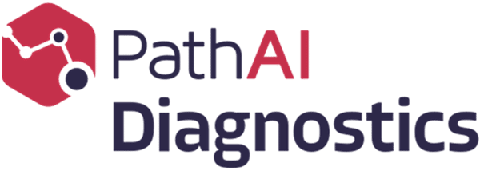
7. Path AI
Path AI harnesses cutting-edge machine learning algorithms to analyze and interpret complex medical imaging data with high accuracy and efficiency. Through automating the analysis of pathology slides, Path AI significantly speeds up the diagnostic process, allowing for quicker detection and treatment of diseases.
It utilizes artificial intelligence to analyze pathology images, aiding pathologists in more accurate and efficient diagnoses. PathAI's AI system can detect patterns and anomalies in slides that may be missed by human eyes, leading to improved diagnostic accuracy and speed. This capability has the potential to revolutionize pathology practice, reduce error rates, and ultimately improve patient care outcomes.
Why should you use this AI?
Enhanced Insights
The advanced algorithms used by PathAI can provide additional insights and information from pathology images, leading to more comprehensive diagnostic assessments.
Consistency
AI systems like PathAI can provide consistent results, reducing variability in interpretations that may occur with different human pathologists.
Research Support
PathAI can be valuable for research applications, helping researchers analyze large volumes of pathology data quickly and explore novel patterns or correlations.
8. Butterfly Network
In order to develop a new portable medical imaging technology that can considerably reduce the cost and improve the efficiency of both MRIs and ultrasounds, Jonathan Rothberg founded Butterfly Network in 2011. Ultimately, he wants to automate as much of the imaging process as possible.
The first step in achieving this objective is the company's Butterfly iQ. With the use of Ultrasound-on-Chip technology, this compact handheld device can perform whole-body imaging with just one probe by substituting a single silicon chip for the conventional transducer system. This allows the device to emulate any kind of transducer, whether it be linear, curved, or phased. The Butterfly iQ is making remote medical imaging a reality by fusing semiconductors, artificial intelligence, and cloud technology in a portable form factor. This is beneficial to isolated populations, some of which are receiving such vital medical information for the first time.
Why should you use this AI?
Research
With this technology more research can be done and it can become more accessible.
Cost effective
Instead of going to a lab and paying multiple hospital bills this portable device can fulfill many different needs.
Education
With this technology more studies can be done leading to an increased understanding of the matter.
9. Tempus
Tempus operates at the forefront of medical imaging, artificial intelligence, and cloud technology. Tempus aims to revolutionize medical imaging by harnessing the power of AI and the cloud.
Its deep learning AI-powered platform, which has received FDA clearance, automates repetitive procedures and frees up doctors' time. This allows them to focus on providing high-quality patient care. The platform significantly reduces missed detections by up to 70%. Furthermore, Tempus's system provides users with around the clock connectivity, enabling access to critical patient data anytime, anywhere in the world.
In October 2022, Tempus Labs, a leading precision medicine AI company, acquired Arterys. This acquisition may have been one of the largest in the history of imaging AI, highlighting the ongoing evolution of the sector beyond traditional radiology use cases.
Why should you use this AI?
Diagnostic Accuracy
The Tempus platform enhances therapeutic value by deriving actionable insights from medical images.
Faster Processing Times
Tempus offers some of the fastest response times among radiology AI solutions.
Usability
With a single click, lesions and areas of interest can be examined, making the platform highly user-friendly.
10. Atomwise
This San Francisco-based startup promises to cut pharmaceutical research costs by utilizing supercomputers to forecast which possible medicines will and will not work based on a database of molecular structures.
Convolutional neural networks, an AI technique akin to that which permits self-driving cars or phone conversations, are the basis of their technology, known as AtomNet. AtomNet predicts the binding of tiny compounds to proteins and, in doing so, finds a safe and effective therapeutic candidate by using signals from thousands of protein structures and millions of experimental affinity measurements.
In August 2022, Atomwise struck a $1.2 billion research cooperation with Sanofi, which focuses on using the AtomNet platform to study tiny compounds targeting up to five different therapeutic targets. Deep learning is included into the platform for structure-based medication creation, allowing Atomwise's exclusive library of over 3 trillion synthesizable molecules to be quickly and intelligently searched.
Why should you use this AI?
Virtual screening
This accelerates the process of identifying potential drug candidates.
Development of treatments
Researchers can efficiently screen millions of compounds Atomwise.
Discovery of new drugs
Through the power of faster processing and their diverse portfolio Atomwise ia able to produce new drugs efficiently.
Quick Comparison — Core AI Approaches
| Vendor | Primary AI Approach | Strengths | Limitations |
|---|---|---|---|
| Praxis EMR | Reflective Ambient Intelligence; Concept Processor | Physician-centered documentation, adapts to clinician reasoning | Onboarding & personalization time |
| IBM Watson | Knowledge-graph & NLP for CDS | Clinical decision support and large data integration | Integration complexity; varying clinical uptake |
| Google Health | Computer vision & genomics ML | Imaging and genomic pipelines at scale | Regulatory and deployment constraints |
| Microsoft | Cloud platform & AI tooling | Enterprise integration and security | Less focus on physician-authored documentation |
| Augmedix | Real-time documentation assistants | Operational documentation offload | Reliance on transcription and human review |
How to evaluate AI healthcare systems (short guide)
Other innovative companies implementing AI:
- Nvidia, named Company of the Year for 2007 by Forbes, is positioned to be the #1 chip provider for the vast amount of processing power AI will demand in the near future. Indeed, the world's fastest supercomputer to this day is powered by Nvidia GPUs, and the company is planning to construct its own AI supercomputer lab in England. The stock of NVDA got a "buy" recommendation from Bank of America, considering that growing technology trends such as AI, Big Data and Machine Learning (just to name a few) will need unprecedented processing capacity.
- Meta Platforms, the parent company of Facebook, has already included AI technology in its newsfeed and advertising algorithms, sparking criticism from skeptics who claim Meta is putting user safety and social stability on the back burner. Jerome Pesenti, the former leader of IBM Watson, joined Facebook's AI team in 2018 when the company shifted its focus to using AI to construct and grow the metaverse, a digital environment in which users live and interact. The metaverse will be a huge investment, although Meta stock is now trading at a discount.
- DocuSign, an electronic signature and document automation company, has been significantly investing in AI technology in order to make contracts and paperwork more efficient. In 2020, the business paid $188 million for AI contract analysis company Seal Software. Contract AI can assist firms comb through millions of pages of contracts, court decisions, and regulatory requirements to quickly identify wording that might lead to legal challenges, privacy concerns, security problems, or even regulatory violations. According to Sills, the e-signature market is worth $24 billion to DocuSign.
- Taiwan Semiconductor Manufacturing (TSM) is a factory that manufactures state-of-the-art AI chips for companies like Nvidia, Apple, Qualcomm and many others. TSM is also investing in its own AI hardware research, including near-memory and in-memory computing, integrated non-volatile memory technologies, 3D integration, and error-resilient computing. The expansion of IoT, the emergence of AI, and the rising complexity of mobile applications will fuel demand for TSM services and double-digit revenue growth in the coming years.
- ABB is concentrating its efforts on creating industrial automation solutions that boost performance while reducing environmental impact. ABB's Industrial AI Accelerator program gives resources and support to AI tech entrepreneurs as they build industrial AI technologies. As the worldwide sector recovers from 2020 shutdowns, margins from its Process Automation division are at multi-year highs. ABB is a market leader in industrial electrification, robotics, and automation, despite recent supply chain restrictions.
- NICE is a major developer of call center software and customer interaction management tools. Fraud detection and regulatory compliance are also made easier using NICE's AI and machine learning technologies. The company employs artificial intelligence (AI) to assist organizations in categorizing and analyzing voice interactions, harnessing the power of data analytics to enhance how businesses communicate with contact center personnel. Many firms are increasing expenditures in customer engagement activities in the post-pandemic environment, and NICE is a market leader in the contact center as a service
How to select an EHR System
An Electronic Health Record (EHR) system is the cornerstone of modern healthcare management, offering a comprehensive digital solution for storing and managing patient information. From demographics to medical histories, vital signs, and beyond, EHRs provide a centralized platform for healthcare professionals to access and update patient records securely and efficiently. These systems revolutionize the way medical data is collected, stored, and shared, enabling seamless collaboration among healthcare providers across different organizations.
Expert Insights: EHR systems have transformed the healthcare landscape by digitizing patient records, improving accessibility, and enhancing data security. By centralizing medical information, EHRs streamline administrative tasks, reduce errors, and ultimately improve patient care outcomes. However, successful implementation and utilization require careful planning, training, and ongoing support to maximize their benefits.
The adoption of EHR software offers a multitude of benefits for healthcare organizations, practitioners, and patients alike. One of the most significant advantages is the improvement in patient care quality. With EHRs, healthcare providers have instant access to up-to-date patient information, enabling them to make more informed clinical decisions and deliver personalized care tailored to each patient's needs.
Additionally, EHRs facilitate better care coordination among multidisciplinary healthcare teams, leading to more efficient and effective treatment plans.
Expert Insights: EHR software is not just a digital repository for patient data; it is a powerful tool that can enhance the quality and efficiency of healthcare delivery. By automating routine tasks, reducing paperwork, and minimizing errors, EHRs allow healthcare professionals to focus more on patient care.
Furthermore, the integration of decision support tools and clinical decision-making aids within EHR systems can help improve diagnostic accuracy and treatment outcomes.
Choosing the right EHR system is a critical decision for healthcare organizations, as it can significantly impact workflow efficiency, patient care quality, and overall practice performance. When evaluating EHR options, it's essential to consider factors such as the system's functionality, ease of use, interoperability, scalability, and cost-effectiveness.
Additionally, assessing the vendor's reputation, customer support services, and compliance with regulatory requirements is crucial to ensure a successful implementation and long-term partnership.
Expert Insights: Selecting the right EHR system requires careful consideration of both current and future needs. Healthcare organizations should conduct a thorough assessment of their workflow processes, stakeholder requirements, and IT infrastructure capabilities before choosing a system.
Online reviews and networking with other healthcare professionals who discuss their EHR online can provide valuable insights and recommendations during the selection process.
EHR systems come in various forms, each with its unique advantages and considerations. Physician-hosted systems offer greater control over data security and customization but require significant investment in infrastructure and maintenance.
On the other hand, remotely hosted systems, such as cloud-based solutions, provide scalability, flexibility, and accessibility, making them ideal for healthcare organizations of all sizes. However, they may raise concerns about data privacy, vendor reliability, and network connectivity.
Expert Insights: The choice between physician-hosted and remotely hosted EHR systems depends on factors such as budget, IT expertise, data security requirements, and organizational preferences. While physician-hosted systems offer greater control and customization options, cloud-based solutions offer scalability, accessibility, and cost-effectiveness.
Ultimately, healthcare organizations should prioritize data security, regulatory compliance, and interoperability when selecting an EHR system that best fits their needs.
The terms electronic medical record (EMR) and electronic health record (EHR) are used interchangeably today. Praxis is a certified EHR but emphasizes the precision of the term EMR for clinician-focused workflows. See EMR vs EHR for details.
- Flexibility and Adaptability: Template-free AI-based EHRs offer unparalleled flexibility and adaptability compared to traditional template-based EHRs. Instead of rigid templates that dictate data entry formats, AI-driven systems can analyze unstructured data and adapt to the unique needs of each patient encounter.
- Enhanced Efficiency: Template-free AI-based EHRs streamline clinical workflows and enhance efficiency by automating data entry, documentation, and coding processes. Traditional template-based EHRs require manual data entry and selection from predefined templates, which can be time-consuming and prone to errors.
- Improved Clinical Documentation: Template-free AI-based EHRs improve the quality and accuracy of clinical documentation by generating comprehensive clinical narratives based on unstructured data. AI-driven systems analyze the entire clinical note and generate structured documentation that is more comprehensive, accurate, and standardized.
- Personalized Patient Care: Template-free EHRs enable personalized patient care by leveraging advanced analytics and predictive modeling capabilities. These systems can analyze large volumes of patient data to identify trends, risk factors, and treatment options tailored to each patient's unique needs.
- Scalability and Innovation: Template-free AI-based EHRs offer scalability and innovation that traditional template-based EHRs cannot match. AI-driven systems have the ability to continuously learn and improve over time, incorporating new data sources, algorithms, and insights to enhance performance and accuracy.
Template-free AI-based EHRs represent the next evolution in healthcare technology, offering unparalleled flexibility, efficiency, and clinical documentation compared to traditional template-based EHRs. By leveraging advanced AI algorithms, these systems empower healthcare providers to deliver personalized patient care, streamline clinical workflows, and stay ahead of technological advancements.
As healthcare organizations continue to prioritize digitization and innovation, template-free AI-based EHRs will play a crucial role in driving positive outcomes for patients and providers alike.
When comparing EHR technologies, healthcare organizations should prioritize solutions that leverage AI and machine learning to optimize clinical workflows and improve overall practice performance.
You don’t need consultants; do your own online research.
In the ever-evolving landscape of healthcare technology, selecting the best Electronic Health Record (EHR) system is a decision of paramount importance for healthcare organizations. While vendor-provided information and demonstrations offer valuable insights into system capabilities, third-party rating sites and online reviews from real-life practicing physicians play a crucial role in the decision-making process.
- Unbiased Perspectives: Third-party rating sites and online reviews provide unbiased perspectives from actual users of EHR systems. These reviews offer candid feedback on system performance, usability, and customer support, helping healthcare organizations gain a comprehensive understanding of the pros and cons of each system.
- Real-world Experiences: Reviews from practicing physicians offer real-world insights into how EHR systems perform in clinical settings. Physicians can share their experiences with system functionality, workflow integration, and overall user satisfaction, offering valuable insights that cannot be gleaned from vendor-provided information alone.
- Peer Recommendations: Peer recommendations carry significant weight in the healthcare community. Physicians are more likely to trust the opinions of their colleagues who have firsthand experience with EHR systems. Positive reviews and recommendations from trusted peers can instill confidence in the decision-making process and help healthcare organizations narrow down their options.
- Identifying Pain Points: Reading reviews from real-life users can help healthcare organizations identify potential pain points and challenges associated with specific EHR systems. Whether it's issues with usability, interoperability, or customer support, reviews provide valuable insights into areas where a particular system may fall short, allowing organizations to make informed decisions.
- Validation of Claims: Third-party reviews serve as a validation of vendor claims and marketing messages. While vendors may tout the benefits and features of their EHR systems, real-life user experiences offer tangible evidence of whether these claims hold true in practice.
Positive reviews that align with vendor promises can provide reassurance to healthcare organizations considering a particular system. In summary, third-party rating sites and online reviews from practicing physicians are invaluable resources for healthcare organizations navigating the complex landscape of EHR system selection.
By offering unbiased perspectives, real-world experiences, peer recommendations, insights into pain points, and validation of vendor claims, these reviews empower organizations to make informed decisions that align with their clinical and operational needs.
